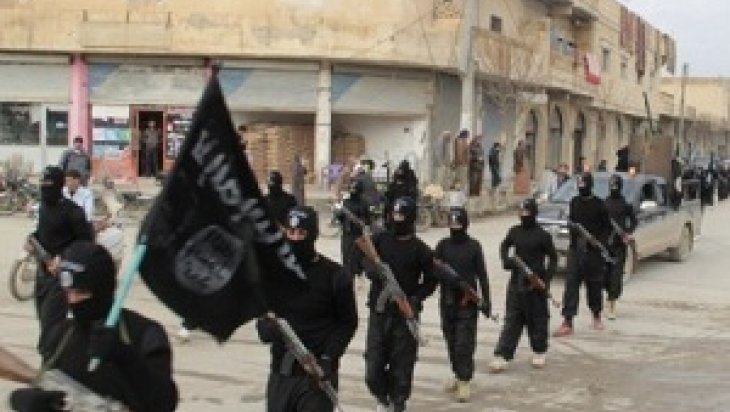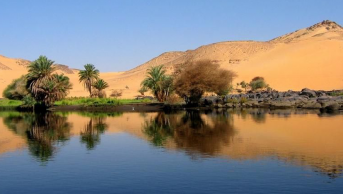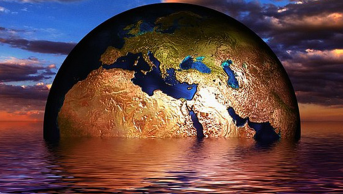Water and the War with Daesh: The Mosul Paradox

The significance of Mosul unfolds itself in numerous dimensions. Its place in history is extraordinary. The great Assyrian city of Nineveh, where today’s Mosul is also situated, was once the largest city in the world. It has traditionally been one of the points where eastern and western civilizations have incessantly mingled into a rich fusion. This may explain Mosul’s diverse ethnic mix and the city’s regional impact which continues to make it one of the greatest centers in the modern Middle East. It is currently the third largest city in Iraq, following the capital Baghdad and Basra.
Mosul is actually blessed with a generous water source, the River Tigris.Tigris is the biggest river in the southwest Asia in terms of water flow.Also, the largest dam in Iraq,located some thirty kilometers north of the city along the Tigris, is named after Mosul. Despite these endowments, after nearly-two-months-old fighting in and around the urban agglomeration of Mosul, the water has become an issue of –literally- ‘life and death’. It has more become so when a key water pipeline was hit several days ago during the intensive fighting. The dwellers of Mosul now face with extreme challenges related with drinking water shortages.
Even earlier, water had manifested itself as a serious threat when the risk of the failure of the Mosul Dam became so imminent. Mosul Dam was a strategic location that changed hands in the last couple of years. Even before it fell to the DAESH control, it had been infamously called as “the most dangerous dam in the world”. The risk was a sudden collapse that may food all the downstream, including the city of Mosul and beyond. It was studied that up to a million people –in worst case scenarios- can get killed by the floodwaters of the Dam. According to estimates, the flood waves would even reach and flood parts of Baghdad, nearly four hundred kilometers south, and remain there for weeks. The Dam was built on a geologically inappropriate foundation that required constant care and repair. The works of repair apparently suspended after the Dam was invaded by DAESH. Fortunately, before sucha doomsday disaster hit, the Mosul Dam was cleared from DAESH and the works of repair resumed. It was a reminder of shaky foundations of the water management of Iraq as well.
Mosul has been under control of DAESH since June 2014. It is by far the largest city held by DAESH. It is one of the main reasons that DAESH has arduously channeled all of its strength to keep it. The DAESH rule in Mosul has been undoubtedly devastating. Apart from the huge losses of lives during the consolidation phase of the DAESH control –despite its Sunni majority-, the city’s culture experienced a huge blow, too. DAESH closed the universityat first and then turned it into a base of its activities. It has been reported that tens of thousands of printed materials at the Mosul University and elsewhere in the city were destroyed by the DAESH terrorists. Many artefacts from various ancient civilizations were also deliberately ruined.
The war against DAESH, thus, can be justified in many ways. There is a strong consensus not only in the minds of the majority of the people in the region, but also those of the international community that DAESH should be cleared of the region. Nevertheless, the way this war should be waged could be a matter of controversy. The cost of liberating Mosul should not be heightened to a degree wherelives of hundreds of thousands innocent peopleseriously are put under risk of annihilation. This risk does not only stem from direct dangers associated directly with DAESH. It is more of a crisis of water and food.
The UN warning last week should be read within such a context. Lise Grande, UN’s humanitarian coordinator in Iraq, speaking to Reuters last week, has said “Key informants are telling us that poor families are struggling to put sufficient food on their tables”. Food supplies are diminishing very rapidly in Mosul. The last food supply route was attacked, and cut off last week. People in Mosul now have to find (grow) their food in their tiny gardens. Water could have helped a bit in this, to overcome food shortages, but only if there were no problems regarding the water supply to the city. Unfortunately, water is now under fire, too.
In brief, Mosul is now under a complete siege. DAESH-controlled city has lost all its connections with the outside world. It is expected that the war would last into the new year. In such circumstances, the international community should proactively try to find ways to protect lives of the innocent masses in Mosul area. Clean and adequate water is the key for improving people’s conditions in war situations. Despite all the evil of DAESH, it would still be unjust to wage a war that targets the whole population indiscriminately.In that case it would definitely be a tragic Pyrrhic victory.









